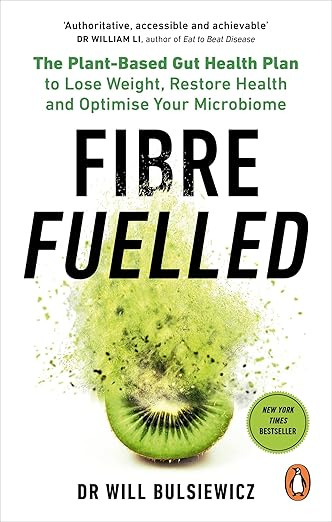Anxious or Low Mood? Check your gut
What if what you're feeling isn’t just in your head… but ALSO in your gut? 🧠💥 The research might surprise you—let’s unpack the gut-brain connection.
We often consider the brain as our main control center—but your gut plays a much bigger role in mood and anxiety than you might expect.
👶 While the brain houses an estimated 86 billion neurons, the gut holds its own with around 186 million. No wonder scientists have dubbed it our “second brain”… though I’m starting to think it deserves first place! 🤣 Let me explain.
Your gut has its own nervous system—called the enteric nervous system (ENS)—which controls local functions like digestion and motility. And fascinatingly, scientists believe that in evolutionary terms, the ENS actually developed before the brain.1
💬 The gut and brain are constantly in conversation, whether you realize it or not. This two-way communication, known as the gut-brain axis, happens through several key pathways:
The vagus nerve (a direct neural superhighway).
Hormones - chemical messengers that travel around the body.
Immune messengers like cytokines.
Molecules made by gut bacteria, like short-chain fatty acids (produced when they ferment fiber).
We’re still uncovering the full picture, but the science is compelling: if you struggle with anxiety, depression, or brain fog, overlooking gut health would be a major missed opportunity.
💥 What does the research show?
Most human studies are observational (so we can’t say gut issues directly cause mental health issues), but the patterns are hard to ignore:
People with inflammatory bowel disease (IBD) have a higher risk of anxiety and depression. In one review of 160,000 patients with IBD, 20% had anxiety and 15% had depression.2
Dysbiosis—an imbalance in gut microbes—is linked to a 2.9x higher risk of developing depression within 5 years.3
Gut disorders are even tied to neurodegenerative conditions:
Parkinson’s disease: 3.4x higher risk with gut disorders. Constipation is often the earliest symptom, suggesting Parkinson’s may start in the gut.
Alzheimer’s disease: 1.5x higher risk.4
People with irritable bowel syndrome (IBS) are 3x more likely to experience anxiety or depression. Depending on the study, around 40% of IBS patients report anxiety and 30% report depressive symptoms.5
The direction of the relationship isn’t fully understood—does gut dysfunction cause anxiety and low mood, or the other way round? My opinion? Likely both. But the consistent link between IBS, IBD, and mood symptoms strongly supports the gut-brain connection.
One interesting study of 438 twins (which help control for genetics and childhood environment) even found that an abundance of a specific bacteria in one twin (Parabacteroides) was associated with mental disorders, such as anxiety, depression, and eating-disorders.6
🧬 The Gut Microbiome – the MVP
Inside your digestive tract lives a teeming world of microbes—bacteria, viruses, and archaea—that profoundly influence your health.
Research shows that greater microbial diversity (i.e., the more TYPES of microbes you have) = better health outcomes. These microbes:
Communicate with the brain via the short-chain fatty acids (aka postbiotics) they produce.
Trigger gut hormones that circulate and affect distant organs (including your brain).
Influence immune signaling molecules like cytokines, which are now implicated in mood regulation and inflammation-driven disorders like depression.
👶 What shapes our microbiome?
The gut microbiome starts forming at birth and matures by age 2–3. Animal studies highlight how crucial this early window is:
🐭 Germ-free mice (raised without any gut bacteria) show:
Key factors that influence microbiome development include:
Mode of birth: Vaginal birth exposes babies to beneficial maternal bacteria from the birth canal. While C-sections may bypass this step, there are other ways to nurture your baby’s microbiome—so no guilt if that’s the route needed to keep mom and baby safe.
Feeding: Breast milk is rich in prebiotics that feed early microbes. But if breastfeeding isn’t possible, don’t feel guilty - know there are still ways to support your baby’s gut health.
Diet: This is the most powerful tool we have to shape the microbiome. Think of gut microbes like pets—they all like different foods, but they generally love colorful plants.
More fiber and plants = healthier microbiome. If fiber causes bloating, that’s often a sign your gut needs support—build slowly and consult a gastroenterologist if symptoms do not go away. Dr. Will Bulsiewicz’s books and cookbooks are great resources.
More types of plants = better diversity.
Toxins: Alcohol, pesticides, and environmental toxins can directly harm the microbiome.
Stress: A known trigger for IBD and IBS, stress can increase intestinal permeability (leaky gut) and negatively alter microbial balance.
Sleep and exercise: Believe it or not, both can influence your microbiome. It thrives on consistent, quality sleep and moderate physical activity - not too much, because excessive exercise has been linked to leaky gut, and not too little.11
🧠 Serotonin - the ‘happy hormone’
About 90% of serotonin is produced in the gut—but here’s what most people fail to mention in the same sentence - most of it doesn’t cross into the brain. It likely has very important local functions. For example, it supports gut motility, which is important for regular bowel movements.
The good news is its precursor, 5-hydroxytryptophan (5-HTP), can cross the blood-brain barrier pretty easily and then be converted to serotonin in the brain. We can get tryptophan (which becomes 5-hydroxytryptophan) from our diet (keep reading).
💊 Should you take probiotics if you’re anxious or low in mood?
Every time I talk about gut health, this is almost always the first thing I get asked.








